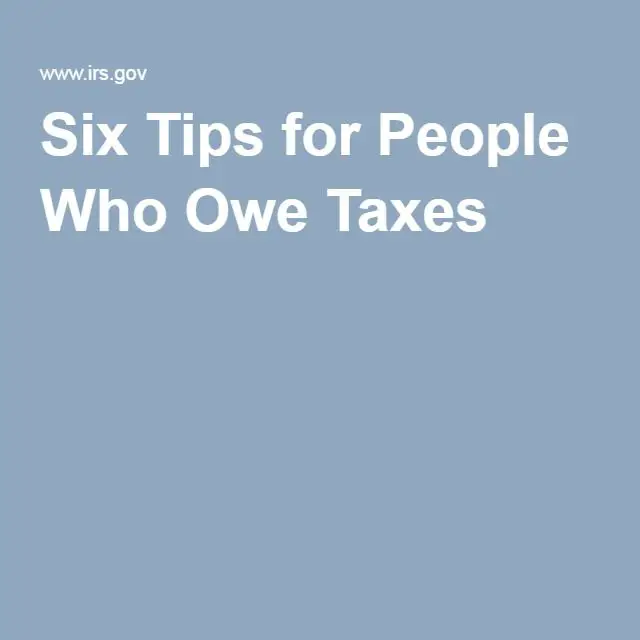Owner Occupied Real Estate
Borrow against the owned real estate which houses your business, given it has adequate equity.
If you have the resources to qualify for any of these options, you will almost surely need the services of an experienced IRS Tax Lawyer. They can prepare and review the appropriate paperwork, draw up the agreements, review the existing assets for loan covenants, subordination clauses and pre-payment penalties, etc.
Request An Offer In Compromise
An offer in compromise allows you to offer a lower amount to the IRS, and if approved, the IRS will forgive the remaining balance. However, you must qualify for the OIC.
Before the IRS approves an OIC, it will consider a few factors, which include your ability to pay, your income, expenses and your asset equity.
Your asset equity is determined by subtracting any amount owed to creditors or others from the value of an asset. For example, if your investment property is worth $250,000 and you have a mortgage of $175,000, your asset equity is $75,000.
To qualify for an OIC, the IRS requires you to be current with both your tax return filings and estimated tax payments. Also, if you are a business owner and have employees, the IRS requires you to make all federal employment tax payments for the current quarter to qualify. You must also demonstrate you are unable to pay the full balance through alternative options, such as an installment agreement or other financial means. If you are in the process of filing bankruptcy, you cannot enter into an OIC with the IRS.
You can find out if you may be eligible by using the IRS pre-qualifier tool. This tool guides you through questions about your financial information and tax filing status to determine a potential offer amount. But it should only be used for informational purposes. The IRS bases its decision on your completed application, Form 656, and its preliminary investigation.
Why Does The Irs Overestimate Tax Withholding
The IRSs system is designed to generally overestimate how much each citizen owes in taxes to the government. The IRS is essentially taking a loan from you instead of the other way around.
This overestimation of taxes owed is why about 70% of U.S. taxpayers normally end up getting a refund after tax season is concluded. Some love it, as its seen as a forced saving. Others bemoan the fact that theyre really just being paid back their own money they didnt need to pay in the first place.
Read Also: How Do Tax Debt Relief Companies Work
What If I Am Unable To Pay In Full At This Time
If youre unable to pay your tax bills in full, you may qualify for an installment payment agreement . With an IPA, youll make monthly payments toward your unpaid tax balance.What you need to know:
- You must have a bill before you can request an IPA .
- The fastest and easiest way to review your billand request an IPA is through your Online Services account.
- With Online Services, you can view your bills sooner than you would by mail.
- You can make your request online if the IPA is for a balance of $20,000 or less and requires no more than 36 scheduled monthly payments.
- You can keep up to date with your IPA and make payments by visiting Get information regarding your existing IPA.
- The department may offset any money owed to you from a state or federal tax refund to either shorten the duration of your IPA or pay your balance in full.
- Youll continue to accrue penalty and interest on any unpaid balance for the duration of your IPA. If you do not satisfy your full tax balance, or comply with the terms of your IPA, we may take collection action against you.
What Happens If You Dont File Taxes

If you need to file taxes but choose not to, the IRS has several means for bringing you to the table. Actions include, but are not limited to, assessing penalties, fines and interest enforcing tax liens, or more severe measures, for evading any taxes you might owe.
If you fail to file your taxes on time, youll likely encounter whats called a Failure to File Penalty. The penalty for failing to file represents 5% of your unpaid tax liability for each month your return is late, up to 25% of your total unpaid taxes.
If youre due a refund, theres no penalty for failure to file. Though, you do lose the chance of getting that refund. You have a limited period to claim that refund as well. If you havent filed an original return within 3 years of its due date for a refund, you’ve missed the statute of limitations entitling you to the chance of claiming that refund.
Also Check: Can You File Taxes Online
The Electronic Federal Tax Payment System
The Electronic Federal Tax Payment System is a web service operated by the U.S. Treasury Department for processing federal tax payments. You must set up a profile account with your bank account information and wait to receive credentials in the mail, so it’s not an option if you’re right up against the payment deadline.
But once you’re set up, the site saves your account information, so you don’t have to keep re-entering it every time you make a payment. For this reason, EFTPS is particularly good for people who need to pay quarterly estimated taxes, such as those who are self-employed.
You can schedule a payment in advance. It will automatically be withdrawn from your bank account on the date you designate.
Death And Taxes: What Happens When A Deceased Person Owes Taxes
- Nathaniel Altman
No one likes to think about death, especially regarding taxes. But if youre wondering what happens if a deceased person owes taxes, read on.
Well explain how the estate is taxed and who is responsible for paying the bill. Well also cover ways to reduce or avoid tax liability on an estate.
So whether youre planning your estate or are just curious, keep reading for answers to all your questions about death and taxes.
Read Also: Do You Pay Taxes On Life Insurance Payout
Can The Irs Take Your Home If You Have A Mortgage
A mortgage doesnt stop the Internal Revenue Service from taking your home if other assets cannot pay your debt. If you have no agreement with the IRS, do not honor the repayment agreement you do have and cannot pay your debt, the commission can indeed take your house.
Most homeowners with a mortgage get rid of the tax lien on a property and sell or refinance the property to avoid issues with the commission. Kicking taxpayers out of their homes is not a common practice of the IRS, as the commission usually goes after cash assets like stock and bank accounts.
State Taxes And Amended Returns
If you live in a state that has an income tax, dont forget that you may need to file an amended state tax return as well to reflect the same changes that motivated you to change your federal return. You may be due an additional refund from the state as well if youre due one from the federal government. When in doubt, consult with a tax professional or your states tax authority.
Also Check: How To Get Tax Credit For Solar
Don’t Miss: Is It Better To File Taxes Jointly
What If I Owe Less Than $50000 To The Irs
If someone says I owe the IRS $20,000 or I owe the IRS $30,000, their situation is going to be different than someone who owes less than $10,000. If you owe IRS over $10,000 in tax but less than $50,000, you fall into an intermediary category. In this range, the IRS is a lot more likely to issue a tax lien, but its also relatively easy to get a payment arrangement approved.
In particular, when you owe less than $50,000 to the IRS, you can qualify for a Streamlined Installment Agreement. You can apply for this payment plan online or by using Form 9465 .
Luckily, you dont have to provide a lot of information on your application. The IRS only wants to know how much you owe and how much you can afford to pay per month. If you owe less than $50,000, the IRS will automatically approve your payment arrangement as long as you can pay off your balance in 72 months or less.
When the collection statute expiration date falls before the end of the 72-month period, you need to pay off your taxes sooner or sign a waiver to move back the expiration date.
If you cant afford to pay your taxes owed in 72 months, you need to fill out Form 433-A or 433-F . These forms require extremely detailed financial information, and they allow you to request a longer time to make payments, an offer in compromise, or other hardship arrangements.
What Are Three Things You Can Do If You Can’t Pay Your Taxes
If you can’t pay your taxes, here’s what to do:
Read Also: How Can I Access My Past Tax Returns
Filing Taxes For A Deceased With No Estate
The executor of an estate is usually responsible for filing taxes on the deceased. But not everyone dies with an estate to manage.
If no executor has been designated, the tax obligations of the departed will fall on a surviving family member. If there is no estate to administer, things may get complicated.
If youre the representative of a deceased person, you may be required to pay any outstanding taxes.
It may be necessary to contact the IRS to obtain tax records dating back a few years in order to find out what is owing.
Heres a summary of some of the potential taxes that may need to be paid:
How Does A Tax Lien Affect Buying A House

A lien is the IRS’s legal right to seize a taxpayers’ property in order to satisfy a debt. A tax lien grants the Internal Revenue Service legal claim on properties and assets taxpayers potentially acquire. Can I buy a house with a tax lien? While taxpayers can purchase houses even with a tax lien, the tax liability can still impede lending institutions’ ability to facilitate mortgages.
Having a tax lien is a red flag and can complicate your mortgage application process, making buying a home harder. Furthermore, buying a house with an IRStax lien mortgage can ruin your finances. Tax liens can negatively affect creditworthiness and financing options, especially in the home buying process’s final stages. Mortgage lenders can see your tax lien, so your inability to pay your debts will have negative affects.
Moreover, appearing as a risky option to lending institutions with a tax lien may derail your chance of a dream home. If you’re offering cash for a house with a lien, the tax liability may not affect your new home purchase. But can you buy a house owing the IRS? You can buy houses that owe taxes, but it is not advisable. Consider resolving the lien with the sellers before closing the deal because buying a house with IRS debt leads to inherited outstanding payments.
Recommended Reading: Do You Pay Income Tax On Inheritance
Is There A One Time Tax Forgiveness
One-time forgiveness, otherwise known as penalty abatement, is an IRS program that waives any penalties facing taxpayers who have made an error in filing an income tax return or paying on time. This program isn’t for you if you’re notoriously late on filing taxes or have multiple unresolved penalties.
Keep Paying The Taxes You Owe Even After You File And Talk To The Irs About A Payment Plan
Once Tax Day passes, youll have a month or two before the IRS contacts you about the rest of your taxes owed. During that time, keep throwing every available dollar at the balance with the goal of paying it off before they ever contact you.
If you cant pay off your tax bill by that time, you should apply on the IRS website for a payment plan. And good newsyou can set up the plan online without having to call the IRS and wait on hold for hours!
Jennifer M. found the IRS easy to work with when she set up a payment plan.
They were flexible and willing to work with our specific situation. Basically, they asked us what we could afford each month, and we went from there, she explained.
The IRS offers a short-term payment plan for bills that are less than $100,000.1 Long-term monthly plans are available for balances less than $50,000.2 Long-term plans require a set-up fee that ranges from $31 to $130, but the fee could be waived if you fall into the category of low income.3
Jennifer put her tax debt at the top of her debt snowball plan and was super motivated to get rid of it as fast as possible. And she did, in less than a year!
Also Check: How To Get Previous Years Tax Returns
What If I Cant Pay My Taxes
Don’t panic you may qualify for a self-service, online payment plan that allows you to pay off an outstanding balance over time. Once your online application is complete, you’ll receive immediate notification of whether your payment plan has been approved without having to call or write to the IRS. Online payment plans are processed more quickly than requests submitted with electronically filed tax returns, even if the new tax is not yet assessed.
Work With The Cra If You Can
If you owe the CRA money, its best to contact them as soon as possible so you can explain your financial situation and find a solution that works best for you. The faster you do this, the more likely it is that the CRA will be able to work with you to create a fair payment plan that takes your needs into account.
Also Check: When Can You Do Taxes
Owing The Irs Mistake #: Not Setting Up A Payment Plan
The IRS really doesnt want to have to come after you to get the money you owe. To make it easier for taxpayers to pay up, Uncle Sam offers payment plans. If you owe taxes and you cant pay, its a good idea to find out whether you qualify for an installment plan. You may be eligible for an online payment plan if you owe the IRS less than $50,000 in income taxes, penalties and interest. If you fit that criteria, you can apply for a payment agreement online. Otherwise, youll need to fill out Form 9465 and mail it to your local IRS office to see what kind of plan you qualify for.
The IRS gives eligible taxpayers up to 72 months to get their tax debt paid in full. Keep in mind that interest and penalties will continue to pile up until the balance is paid off. If youre owed a refund in any subsequent tax years while youre on the plan, the IRS can subtract those payments from what you owe.
Can The Irs Go Into My Bank Account
The Short Answer: Yes. The IRS probably already knows about many of your financial accounts, and the IRS can get information on how much is there. But, in reality, the IRS rarely digs deeper into your bank and financial accounts unless you’re being audited or the IRS is collecting back taxes from you.
Also Check: How Can I File My 2015 Taxes For Free
Form 2350 Vs Form 4: What Is The Difference
One of the perks of living abroad is an automatic two-month extension to file your taxes. While most Americans have to scramble to complete their taxes by April of each year, expats dont have to file until June.
Of course, even that may not be enough time to get everything ready for filing. Expat taxes are nothing if not complicated. Fortunately, Americans living overseas can request additional extensions by filing Form 4868 or Form 2350. But what is the difference between Form 4868 and Form 2350? Which should you file?
In this post, were going to answer those questions and more. Heres what you need to know.
Penalties For Late Payments And Filing

If you owe money, you may be tempted to wait until the last possible minute. Just don’t leave it too long or you’ll owe penalties on top of your tax balance. The penalty for paying late is 0.5% for each month the payment is late, up to 25% of the amount that’s due. The penalty goes up to 1% 10 days after the government sends you a final notice that it’s going to levy or seize your property.
On top of the penalty for late payment, you’ll pay interest. The interest rate is set quarterly and is based on the federal short-term rate plus 3%. It compounds daily.
Late filing penalties are even worse: 5% of your unpaid taxes every month or part of a month that your return is late, up to 25% of your unpaid taxes. If you’re more than 60 days late, there’s a minimum penalty of $435 or 100% of the taxes owed, whichever is less.
You May Like: Can You Pay Taxes In Installments
